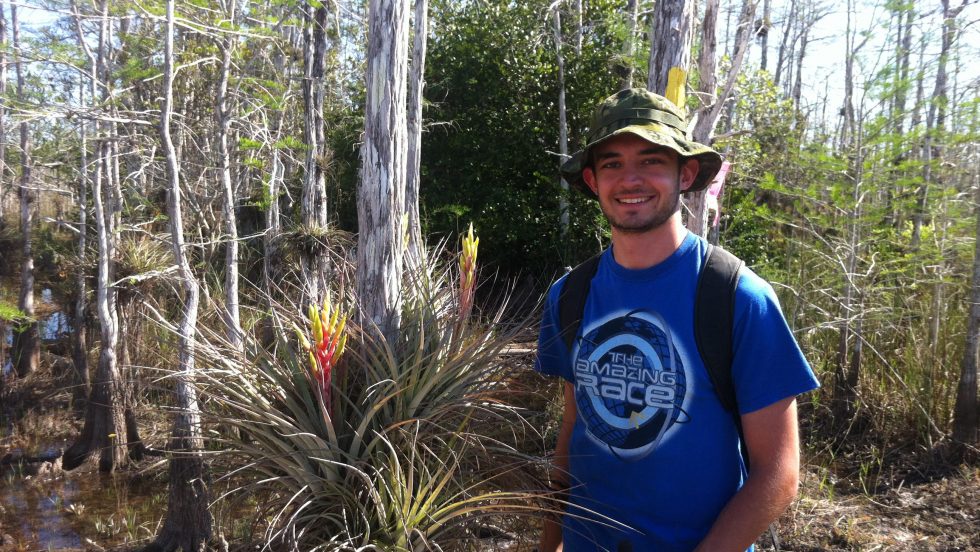Environmentalist Alum Race Stryker Monitors Sarasota’s Mangrove Forests

As an undergraduate, Stryker pursued a dual concentration in environmental studies and political science, writing a thesis entitled The Effect of Mosquito Ditching on Carbon Sequestration in Florida Mangrove Forests. His research provided the first-ever estimate of carbon sequestration in local mangroves; it was also the first assessment of the impact of mosquito ditches (which fundamentally changed the structure of mangroves across Florida).
“I took on a very ambitious project,” Stryker said. “I wanted to create something that would have a lasting effect on the community.”
It has. Stryker, who had already figured out the political realities of climate change through his scholarly work at New College, was inspired to take as much action as he could to mitigate it. He wanted his research to serve as a socio-ecological tool.
“I did this by making sure that the conclusions of my thesis would be directly applicable to local policymakers,” Stryker said.
His research revealed that, before invasive species are removed, their carbon content (and their effect on the carbon cycle) must be taken into account—a fact that directly concerns land management.
“My research shed some important light on the topic of invasive species in carbon accounting regimes. Often, we prioritize removing invasive species without considering the atmospheric carbon that they store in their tissue and below their roots,” Stryker said. “We have to make decisions based on tradeoffs in the field of conservation, and I focused on some of the lesser-explored elements of invasive species so that land managers could make very informed decisions about removing invasive vegetation and its effect on the carbon cycle.”
Stryker’s post-New College work further demonstrates his commitment to preserving his environment and the community. He currently works as an “Eyes on Seagrass” intern with the Sarasota Bay Estuary Program, developing and implementing a baseline monitoring program to contextualize and track the effects of the Piney Point effluence in Upper Sarasota Bay.
He is also pursuing a master’s degree in marine and environmental science at the University of the Virgin Islands, where he is focusing on sedimentation effects in marine ecosystems.
“I will be working to fill a critical knowledge gap in the territory about the relationship between land use and sediment runoff, and the effect that sedimentation has on surrounding marine ecosystems,” Stryker said.
Stryker still thinks about how the experiences and skills he gained at New College impacted his worldview.
“New College helped me become a superlative written and oral communicator, and there were a number of classes that fundamentally changed how I view the world,” Stryker said. “I will never forget the feeling of what it was like to learn and grow like I did at New College. The academic system allowed me to focus on what was really important to me: learning for its own sake and my personal development.”
Stryker’s ultimate career goal is to bridge the gap between science and policy in order to protect the planet’s ecosystems.
“I’m motivated by projects where I can help others protect the ecosystems they rely on,” Stryker said. “So, wherever I am in the future, you can find me trying my hardest to make a positive impact.”
Yasi Bahmanabadi is an intern in the Office of Communications & Marketing.
